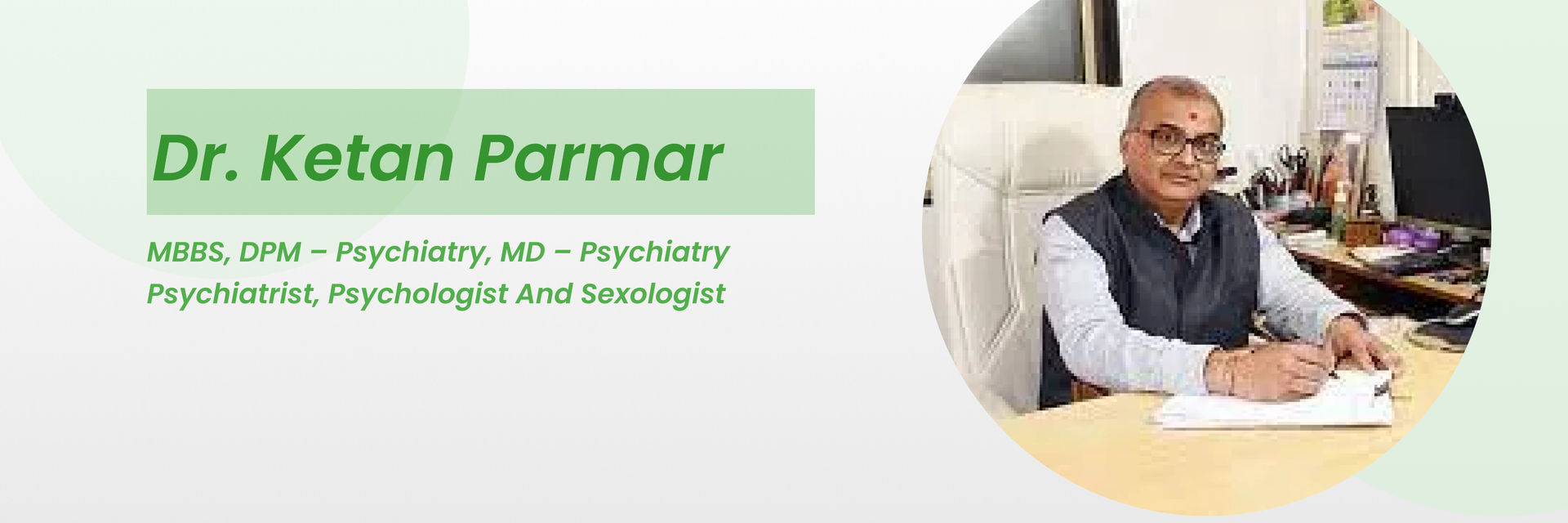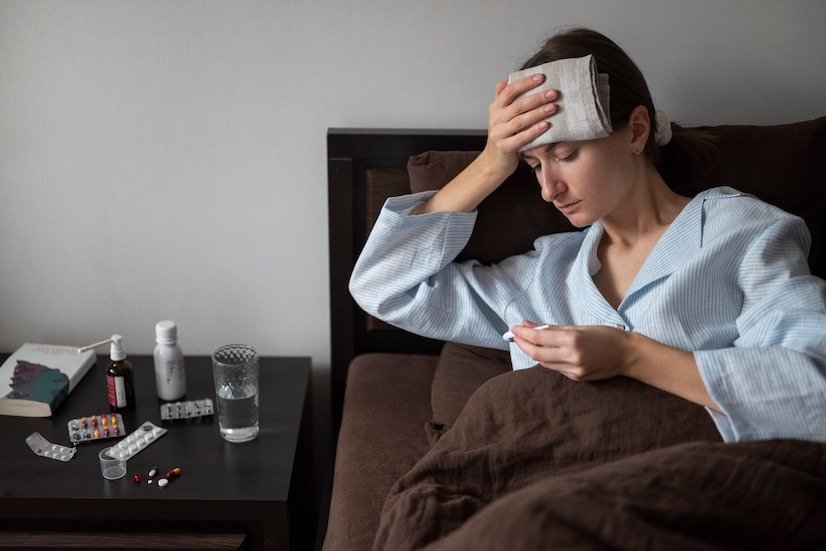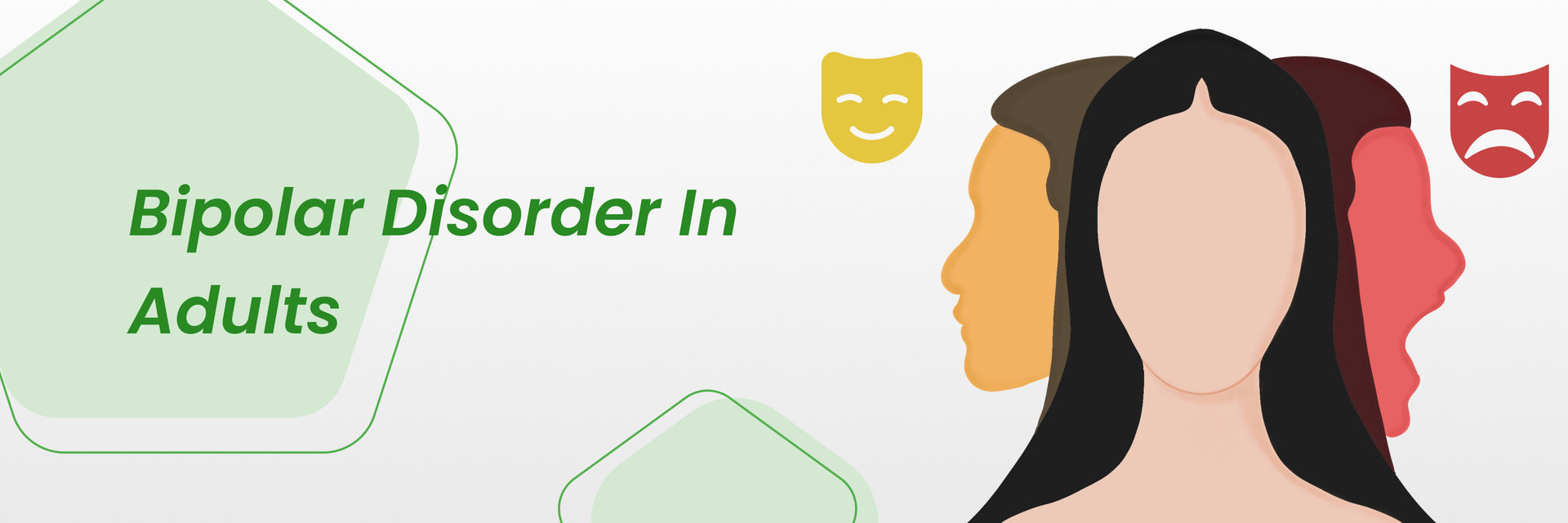Did you know that sometimes, the stress from a tough experience might not show up right away?
This is called Delayed Onset PTSD. It's a type of Post-Traumatic Stress Disorder where the usual stress signs take a long time to show up—sometimes months or even years after the upsetting event. About 1 in 5 people who go through something traumatic face these delayed stress symptoms.
In this blog, we will look at what causes this delay, how to spot the signs, and what you can do about it. If you or someone who might be going through this, you're not alone.
Let’s talk about how to get better and find some comfort along the way.
Explore the Depths of Delayed Onset PTSD. Contact us today to learn more and find support on your journey to healing.
Here’s a simple breakdown of Delayed Onset PTSD:
- What it is: It's when PTSD symptoms start showing up at least six months after a trauma.
- How common it is: While PTSD affects about 8% of people at some point, only a smaller group experiences it later.
- Who it affects most:
- Veterans: Many who served in the military face these issues later, especially after returning to everyday life.
- Accident Survivors: People who’ve been through major accidents sometimes feel stressed much later.
- Assault Survivors: Those who have survived attacks might also find themselves feeling troubled long after the incident.
Knowing this helps us understand why some people might need help long after their tough experience is over.
Ever wonder how PTSD shows up?
Common Signs and Symptoms
Whether it's right after a trauma or much later, the symptoms can be tough to handle. But knowing what they look like can help us spot them early.
- Psychological Symptoms:
- Flashbacks and Nightmares: Reliving the trauma in dreams or sudden memories.
- Avoidance: Staying away from places or people that remind you of the trauma.
- Mood Changes: Feeling sad, angry, or numb without a clear reason.
- Increased Anxiety: Feeling nervous, scared, or panicked.
- Physical Symptoms:
- Sleep Problems: Having trouble falling or staying asleep.
- Fatigue: Feeling tired all the time, even after resting.
- Startling: Jumping at small noises or movements.
- Aches and Pains: Unexplained headaches, back pain, or stomach problems.
And how do these differ from immediate to delayed onset PTSD? Here are the key differences:
- Immediate Onset PTSD:
- Symptoms start right after the trauma.
- The link between the event and symptoms is clearer, making diagnosing it somewhat easier.
- Delayed Onset PTSD:
- Symptoms might not appear until six months or more after the trauma.
- These late symptoms can be confusing and harder to connect back to the traumatic event, often mistaken for new or unrelated issues.
Recognizing these signs immediately or later is the first step toward getting the right help.
What Initiates Late-Stage PTSD Symptoms? Find answers and support today. Reach out now.
Potential Triggers and Causes
Here are some common triggers and causes of Delayed Onset PTSD:
- Life Stressors: Big life changes like a new job, moving houses, or losing a loved one can act as triggers.
- Reminders of the Trauma: Certain smells, places, sounds, or sights that remind someone of the past trauma can trigger symptoms.
- Anniversaries of the Event: Dates of seasons marking the trauma often bring back strong memories.
- New Traumatic Events: A completely different type of stressful event can also set off PTSD symptoms related to a past trauma.
And what about the deeper reasons behind these triggers? Let’s break down the role of cumulative stress and repressed memories.
- Cumulative Stress: This is when stress builds up over time from various sources, not the traumatic event, but everyday pressures, too. This buildup can tip the balance, causing PTSD symptoms to appear long after the original trauma.
- Repressed Memories: Sometimes, the mind hides the most painful or traumatic memories as a protection mechanism. These memories might resurface later, triggered by specific events or reminders, leading to delayed PTSD symptoms.
By identifying what might spark these late-onset symptoms, we can be better prepared to handle them or even prevent them from taking a big toll.
Think identifying PTSD right after a traumatic event is tough?
Diagnosis and Challenges
Imagine diagnosing it months or years later. Getting to the bottom of delayed onset PTSD can be a complex process for both medical professionals and patients.
Here’s how delayed onset PTSD is usually diagnosed and the challenges involved:
- Diagnosis Process:
- Medical Evaluation: Doctors start with a thorough medical history to rule out other conditions.
- Psychological Assessment: This involves detailed discussions about the patient's symptoms, their severity, and how they impact daily life.
- Criteria Matching: Symptoms must meet specific criteria set by mental health guidelines, like those in the DSM-5, which include the timing of symptom onset and their connection to a past trauma.
Understanding the Challenges of Diagnosing Delayed Onset PTSD. Gain insights and support. Contact us to start your journey today.
- Patient Awareness: Many don't realize that their symptoms could be linked to past trauma, especially when they start showing up long after the event.
- Memory Issues: Over time, memories of the trauma can fade, which makes it hard to connect current symptoms to past events.
- Misdiagnosis: Symptoms of delayed onset PTSD can be like those of other mental health issues like depression or anxiety, leading to potential misdiagnosis.
- Stigma and Disclosure: Patients may feel embarrassed about their symptoms or fear being stigmatized, which can prevent them from seeking help.
Navigating these hurdles is crucial for effective treatment. The better we understand the challenges, the more support we can provide those in need.
Finding the right treatment for PTSD can be a beacon of hope, especially if it starts early.
Let's explore the various therapies and medical treatments available for managing delayed-onset PTSD and why timing is crucial.
Treatment Options
Here’s a look at some of the common treatment options:
- Therapeutic Approaches:
- Cognitive Behavioral Therapy (CBT): Help patients manage their PTSD by changing negative thinking patterns.
- Eye Movement Desensitization and Reprocessing (EMDR): Eye movements are used to process and reduce the distress of traumatic memories.
- Prolonged Exposure Therapy: Involves exposing patients to the trauma they experienced in a controlled way to help them handle their reactions.
- Group Therapy: Provides support and builds coping strategies through shared experiences.
- Medical Treatments:
- Antidepressants: Often used to help with symptoms of PTSD, such as sadness and anger.
- Anti-anxiety Medications: Can help reduce anxiety and panic attacks.
- Mood Stabilizers: Sometimes prescribed to stabilize mood swings associated with PTSD.
But why is it so important to start these treatments as soon as possible?
Here are the benefits of early intervention compared to delayed treatment:
- Prevents Worsening of Symptoms: Early treatment can stop symptoms from worsening.
- Improves Long-term Prognosis: Patients are likely to recover faster and more if they start treatment shortly after symptoms begin.
- Less Disruption to Life: Early treatment can help cut the impact of PTSD on personal and professional life.
Reaching out for help at the first sign of trouble can enhance the effectiveness of treatment and offer a better path to recovery.
How to Support Someone with Delayed Onset PTSD
Seeing someone you care about struggle with delayed onset PTSD can be tough, but your support can make a huge difference.
Here are some practical tips for families and friends on how to help.
Here's how you can be supportive:
- Listen Without Judging: Sometimes, a willing ear is the best support you can offer. Listen to their experiences and feelings without trying to solve or dismiss their problems.
- Encourage Professional Help: suggest seeking help from a therapist or doctor and offering to help them find the right professional or even go with them to appointments.
- Stay Patient: Recovery from PTSD can be slow and nonlinear. Be patient and celebrate small victories along the way.
- Learn About PTSD: Understanding what your loved one is going through can help you empathize and know what to expect.
And why is a supportive environment so important? A positive and understanding surrounding can:
- Reduce Stress: A calm and safe environment can help lessen everyday stress
- Promote Healing: Emotional support and understanding can encourage someone to stick with treatment and manage symptoms.
- Build Trust: Knowing they have supportive people around can help someone with PTSD feel secure enough to open up and face their trauma.
Your support can light up the path to recovery, making the journey less intimidating for your loved one. Contact us now.
Conclusion
Recognizing the signs of Delayed Onset PTSD early can make a big difference in people's lives. It's all about knowing what to look out for and understanding that these signs can appear long after something traumatic happens. Early detection leads to timely and effective treatment, preventing symptoms from worsening and reducing the long-term impact on someone's life.
If you or someone you know might be experiencing signs of Delayed Onset PTSD, don’t hesitate to reach out for help. Many support networks and professional services are ready to provide the necessary care.
FAQs
Can PTSD occur years after an event?
Yes, PTSD can appear years later, often triggered by new stresses or reminders.
What are the legal implications for late-diagnosed PTSD?
Late diagnosis can affect legal claims and treatment coverage.
How can I tell if I have Delayed Onset PTSD?
Watch for late-appearing anxiety, mood changes, or flashbacks, and seek professional advice.
Are there specific therapies for Delayed Onset PTSD?
Therapies like CBT, EMDR, and group therapy are effective for Delayed Onset PTSD.
Can children and teens experience Delayed Onset PTSD?
Yes, young people can have Delayed Onset PTSD, showing symptoms differently than adults.
References:
https://ajp.psychiatryonline.org/doi/pdf/10.1176/appi.ajp.2007.06091491






